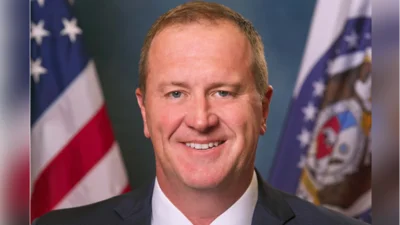Adam Harrison Chief Nursing Officer | Moberly Regional Medical Center
Adam Harrison Chief Nursing Officer | Moberly Regional Medical Center
As temperatures rise, the risk of heat-related illnesses becomes a concern. Dr. Gale Osgood, medical director of emergency services at Moberly Regional Medical Center, emphasizes that "virtually all heat-related illnesses are preventable." Dr. Osgood advises caution when the heat index reaches 90 degrees or higher and recommends staying hydrated with water or fluids containing electrolytes.
Heat exhaustion serves as a warning for potential heat stroke. Symptoms include pale skin, fatigue, dizziness, profuse sweating, rapid pulse, and muscle cramps. Immediate action should be taken by moving to a cooler environment and hydrating with fluids containing salt or sugar. Caffeine and alcohol should be avoided. If symptoms persist beyond 30 minutes, medical assistance is advised.
More severe signs indicate an imminent risk of heat stroke: hot and dry skin without sweat, confusion or unconsciousness, throbbing headache, frequent vomiting, and breathing difficulties. "Heat stroke is more serious than heat exhaustion," warns Dr. Osgood. "The hallmark of heat stroke is altered mental status; if you or someone you know experiences signs of heat stroke, dial 911 or proceed immediately to the nearest ER."
Certain populations are more susceptible to these conditions: infants and young children, the elderly or infirmed individuals, and those on specific medications face increased risks. Community vigilance is encouraged during summer months to check on vulnerable neighbors and ensure no children or pets are left in vehicles.






 Alerts Sign-up
Alerts Sign-up